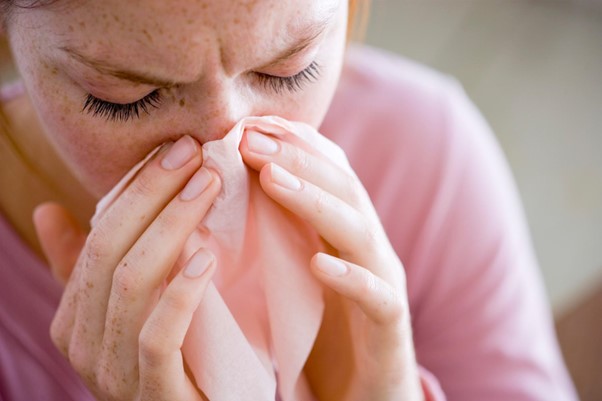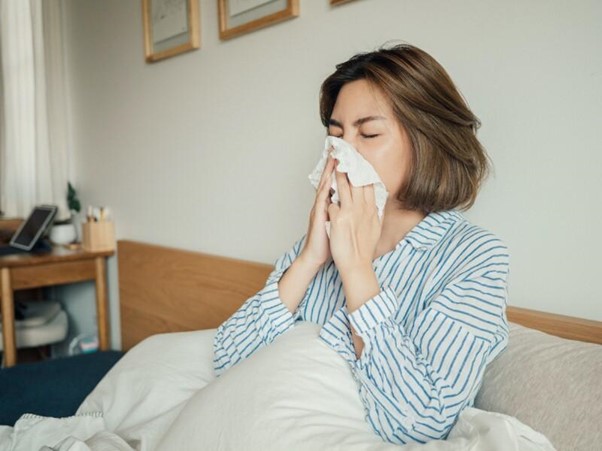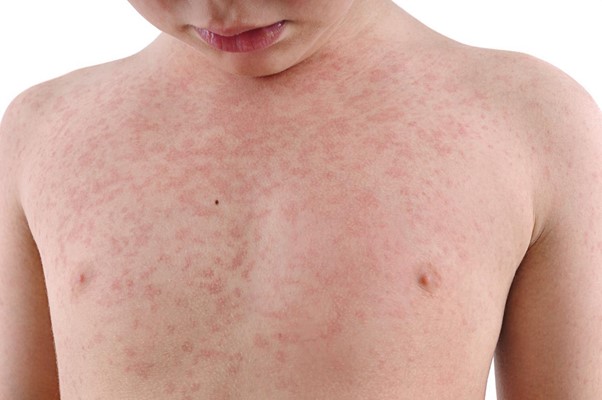How ENT Doctor Can Help Uncover the Source of Your Skin & Food Allergies

How an ENT Doctor Can Help Uncover the Source of Allergies
Do you have persistent skin rashes, itchy eyes, or unexplained food allergies? Are you struggling to uncover the source of your allergies?
An allergist or ENT doctor can help. With their specialized knowledge, they can help identify and treat your allergies so that you can make informed decisions that will improve your quality of life.
What Does an ENT Doctor Do?
An allergy doctor is a specialist who focuses on diagnosing and treating ear, nose, and throat problems. They have specialized training in treating people who suffer from allergies and sensitivities.
These doctors focus on identifying the cause of your symptoms, such as pollen exposure or food sensitivity, so that they can provide treatment options tailored to your specific needs.
When Should You See a Doctor?
If you are suffering from recurring or chronic symptoms related to skin rash or hives, sneezing, congestion, or gastrointestinal distress like bloating and cramping after eating certain foods, then it may be time to see a specialist.
Let the doctor assess your condition and determine if there is an underlying cause for your symptoms. They may also recommend lifestyle changes such as avoiding certain foods or eliminating environmental triggers like dust mites to lessen the severity of the allergic reaction.
Additionally, if you’ve recently moved or traveled to a new place where different plants are growing – like a beach town – this could also be a possible trigger for skin rashes or respiratory issues.
In these cases, seeing an allergy doctor is recommended to determine what kind of allergens are present in your environment and how best to avoid them in the future.
How Does An Doctor Help You?
An allergist or immunologist can help you identify the source of your allergies and customize a treatment plan to meet your needs. An allergist specializes in diagnosing and treating allergies, asthma, and other immune system disorders.
This type of doctor is specially trained to evaluate symptoms and develop an appropriate course of action. An allergy doctor can administer skin and blood tests to accurately diagnose the source of your allergies.
After diagnosis, they will recommend a variety of treatments such as medications, lifestyle changes, and allergen avoidance.
How Does An Doctor Give You a Diagnosis?
A doctor will typically begin by taking a thorough medical history and discussing any past and current symptoms. They may also ask questions about lifestyle changes, such as diet, recent travel, and contact with animals or other allergens.

Based on this initial evaluation, the doctor may then recommend various tests, such as skin-prick tests or food sensitivity testing, to determine any allergens you may be reacting to.
The doctor will then use this information to develop a personalized treatment plan that is tailored to your specific needs and lifestyle. This may include medications, dietary changes, avoiding certain activities, or desensitization therapy.
How Does An Allergy Doctor Guide You?
In addition to helping you identify which allergens are triggering your symptoms, an allergy doctor can also provide advice on how to avoid those triggers in the future.
This could include guidance on avoiding certain foods, keeping your home environment allergen-free, and using special products to reduce your exposure to potential allergens.
The doctor may also suggest immunotherapy treatments such as allergy shots or drops to help you build up a tolerance for specific allergens.
An allergy doctor can provide much-needed relief from the symptoms associated with skin and food allergies.
The doctor can help you identify the source of your allergies, develop an appropriate treatment plan, and provide advice on how to minimize contact with triggering allergens in the future.
With the right care, you can find relief from persistent allergy symptoms and live a more comfortable life.
Conclusion
Allergies can have a significant impact on our day-to-day lives—from mild discomfort to full-blown reactions that require medical attention.
If you’re experiencing ongoing symptoms related to allergies without any clear resolution after trying over-the-counter remedies at home then it’s time to consult with an allergy doctor who can help uncover the source of your allergies and develop a personalized plan for treatment that works best for you!
With their specialized knowledge and expertise in this area of medicine, they will be able to not only diagnose but also provide advice about how best to manage your condition going forward.
It’s important not to ignore any pesky symptoms – visit an ENT clinic today or make an appointment with an ENT specialist at https://drkhliment.com.sg/ today!










